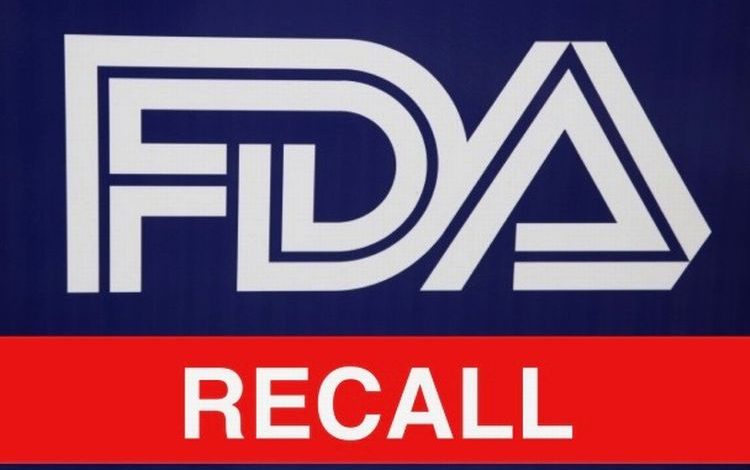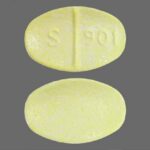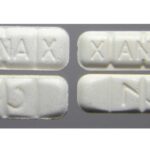Why is Xanax Being Recalled?

Xanax is a brand of alprazolam an anti-anxiety medication in the benzodiazepine drug family, the same family that includes diazepam (Valium), clonazepam (Klonopin), lorazepam (Ativan), flurazepam (Dalmane), and others. Alprazolam and other benzodiazepines act by enhancing the effects of gamma-aminobutyric acid (GABA) in the brain.
GABA is a neurotransmitter (a chemical that nerve cells use to communicate with each other) that inhibits activity in the brain. It is believed that excessive activity in the brain may cause anxiety or other psychiatric disorders. The FDA approved alprazolam in October 1981.
Xanax is approved for the treatment of generalized anxiety disorder (GAD) and panic disorder with or without agoraphobia. However, benzodiazepines are also commonly used to treat difficulty sleeping and alcohol withdrawal.
Generalized Anxiety Disorder (GAD) occurs when a person experiences excessive anxiety or worry for at least six months. Other symptoms include:
• Restlessness
• Fatigue (low energy, feeling tired all the time)
• Difficulty concentrating
• Irritability
• Muscle tension
• Sleep disturbance (difficulty falling asleep or waking up in the middle of the night)
Panic Disorder occurs when a person experiences unexpected and repeated episodes of intense fear. These episodes have physical symptoms including chest pain, shortness of breath, heart palpitations, sweating, dizziness, and nausea. Fear of future episodes is also part of panic disorder.
Why was Xanax taken off the market?
According to the U.S. Food and Drug Administration, one lot of alprazolam (Xanax) tablets USP C-IV 0.5 mg packaged in bottles of 500 was recalled by Mylan Pharmaceuticals Inc. due to potential contamination that poses a risk of infection. The affected batch with lot number 8082708 has an expiry date of September 2020 and was distributed between July 2019 and August 2019.
A manufacturer can voluntarily recall their medication or the Food and Drug Administration (FDA) can request or require that a manufacturer recall a particular medication. In this case, the manufacturer voluntarily recalled one lot of alprazolam 0.5 mg tablets.
Mylan has notified its distributors and customers by letter and is arranging for the return of all recalled products. Following are actions for wholesalers, retailers, and consumers:
- Wholesaler: Immediately examine your inventory, quarantine and discontinue distribution of these lots. In addition, if you have further distributed the product, please identify your retail level customers and provide a list of customers via Microsoft excel file to mylan5924@stericycle.com within 10 business days. Stericycle will notify your retail level customers that received the affected batches.
- Retailer: Immediately examine your inventory, quarantine and discontinue distribution of these lots. Additionally, if you have further distributed the product, please identify the consumer and notify them immediately of this product recall. The consumer should be instructed to contact Stericycle at 1-888-843-0255 for the documentation packet to return the product.
- Consumer: Please contact Stericycle at 1-888-843-0255 for the documentation packet to return product to Stericycle.
For more information, consumers can call Mylan at 1-800-796-9526. Anyone who’s experienced any problems that may be related to using the recalled medication should contact their physician or healthcare provider. Mylan did not disclose the identity of the foreign substance implicated in the Xanax recall.
What are the side effects of Xanax?
Get emergency medical help if you have signs of an allergic reaction to Xanax: hives; difficult breathing; swelling of your face, lips, tongue, or throat.
Xanax can slow or stop your breathing, especially if you have recently used an opioid medication or alcohol. A person caring for you should seek emergency medical attention if you have slow breathing with long pauses, blue-colored lips, or if you are hard to wake up.
Call your doctor at once if you have:
• weak or shallow breathing;
• a light-headed feeling, like you might pass out;
• a seizure;
• hallucinations, risk-taking behavior;
• increased energy, decreased need for sleep;
• racing thoughts, being agitated or talkative;
• double vision; or
• jaundice (yellowing of the skin or eyes).
Drowsiness or dizziness may last longer in older adults. Use caution to avoid falling or accidental injury.
Common Xanax side effects may include:
• drowsiness; or
• feeling light-headed.
After you stop using Xanax, get medical help right away if you have symptoms such as unusual muscle movements, being more active or talkative, sudden and severe changes in mood or behavior, confusion, hallucinations, seizures, suicidal thoughts, or actions.
Some withdrawal symptoms may last up to 12 months or longer after stopping this medicine suddenly. Tell your doctor if you have ongoing anxiety, depression, problems with memory or thinking, trouble sleeping, ringing in your ears, a burning or prickly feeling, or a crawling sensation under your skin.
This is not a complete list of side effects and others may occur. Call your doctor for medical advice about side effects. You may report side effects to FDA at 1-800-FDA-1088.





